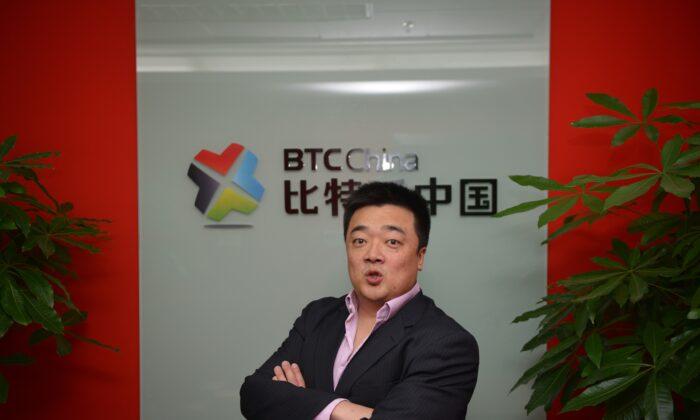On Sept. 24, China’s central bank issued a joint notice, with the Public Security Bureau and eight other departments, specifying that all virtual currency-related business activities are “illegal financial activities.”
Affected by China’s severe stance, the price of bitcoin encountered a steep drop at 4 p.m. on Sept. 26, plunging nearly $2,000 in one hour; Crypto-currency exchange company Huobi saw 22,000 bitcoins, equivalent to $930 million, transferred out in two days, according to China web portal site Sina.China affairs expert Li Yanming told The Epoch Times that the crackdown on virtual money should be part of the Xi Jinping regime’s overhaul of the financial system. “While competing with ex-leader Jiang Zemin’s faction for [the] ’money bag,' Xi still need to plug loopholes for capital flows to prevent the risk of instability in the financial system.”
Early in July, a rumor circulated that Tether, the world’s largest stablecoin issuer, has reserve assets that include bonds or securities of China Evergrande, a real estate giant that is in debt crisis, said Chinese financial media East Money.
Financial System Problems
On several occasions, the Xi Jinping regime has raised the financial system problems to the same level as a criminal offense, Li said.“Xi’s authorities regard virtual currency as an uncontrollable money laundering path, because the secretive nature of Virtual currency makes it less traceable for money laundering or foreign exchange transfers,” said Li.
On September 18, the Supreme Prosecutor was stationed at the Securities Regulatory Commission for remediation and supervision of the securities and capital markets.
Since 2016, the Central Bank of China has fined various paying institutions a total of $175 million, said Fan Yifei, deputy president of the Central Bank at a forum on Sept.24.
In a Sept. 25 article titled “Preventing leading cadres from being kidnapped by interest groups,” Baoshang Bank was linked to “unscrupulous financial groups” on the official site of the Discipline Inspection and State Supervision.
Virtual Currency ’Mining’ Industry
On Sept. 24, the Development and Reform Commission issued a notice banning investment and construction of virtual currency “mining” projects and other related activities.Virtual currency mining uses computers to analyze data, which then creates new bitcoin. It maintains a ledger of transactions on which bitcoin is based. The machines use large amounts of energy.
According to a report released by the Development and Reform Commission in 2021, 19 of 32 provinces were on a red or yellow alert on energy consumption and carbon emissions. The areas included Xinjiang district, Yunnan Province, and Sichuan Province, which are where the virtual currency “mining” industries are located.
Wei Tuo, a current political commentator, told The Epoch Times that the banning of virtual currency “mining” project might be linked to the energy crisis. Recently a large-scale power outage occurred in many places in China.
“But more than the energy issue,” Wei said that in fact the ban of virtual currency began as early as 2013, but many local authorities turned a blind eye to the “mining” industry because it can add local fiscal revenues.
Overseas Virtual Currency platforms
Major overseas Chinese trading platforms like Binance, Huobi, and OKEx have closed the registration services for new users in mainland China.On Sept.24 SparkPool announced that it will shut down its mining pool service in China in line with the latest regulatory policy; BeePool said on Sept. 28 that it will stop mining pool services on October 15; Bitmain plans to suspend sales of mining machines in China.
Loopring said on Sept. 26 that it would stop providing trading-related products and services to Chinese users; BHEX, BiONE, and other small trading platforms announced their permanent closure; UP Fintech announced on September 29 that it would gradually stop Chinese customers who want virtual currency funds.
Even though the Chinese Communist regime’s firewall would block overseas websites from operating in mainland China, the virtual currency trading would hardly be extinct in China, said Wei.
According to Wei, in 2017 when Beijing banned virtual currencies, some Chinese-funded virtual currency trading platforms transferred their headquarters out of China, including Binance, Huobi, and OKEx, but they did not cut off operations in China. Around 2018, all of these platforms started to appear in China again, conducting covert or semi-public activities.






